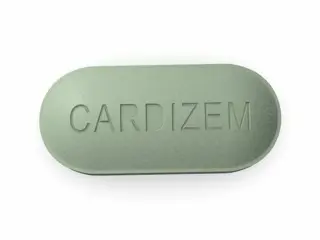| Package | Dosage | Price | Price per Dose | |
|---|---|---|---|---|
| Dosage: 30mg | ||||
| 360 pill | 30mg | NZD604.17 | NZD1.68 | |
| 270 pill | 30mg | NZD475.56 | NZD1.76 | |
| 180 pill | 30mg | NZD337.96 | NZD1.88 | |
| 120 pill | 30mg | NZD251.22 | NZD2.09 | |
| 90 pill | 30mg | NZD203.36 | NZD2.24 | |
| 60 pill | 30mg | NZD146.53 | NZD2.42 | |
| 30 pill | 30mg | NZD77.74 | NZD2.60 | |
| Dosage: 60mg | ||||
| 360 pill | 60mg | NZD828.50 | NZD2.30 | |
| 270 pill | 60mg | NZD631.09 | NZD2.33 | |
| 180 pill | 60mg | NZD424.71 | NZD2.36 | |
| 120 pill | 60mg | NZD290.11 | NZD2.42 | |
| 90 pill | 60mg | NZD230.28 | NZD2.54 | |
| 60 pill | 60mg | NZD158.50 | NZD2.66 | |
| 30 pill | 60mg | NZD86.71 | NZD2.84 | |
| Dosage: 90mg | ||||
| 360 pill | 90mg | NZD1,226.32 | NZD3.41 | |
| 180 pill | 90mg | NZD640.07 | NZD3.56 | |
| 120 pill | 90mg | NZD433.68 | NZD3.62 | |
| 90 pill | 90mg | NZD340.96 | NZD3.80 | |
| 60 pill | 90mg | NZD239.26 | NZD3.98 | |
| 30 pill | 90mg | NZD128.59 | NZD4.28 | |
| Dosage: 120mg | ||||
| 360 pill | 120mg | NZD1,357.93 | NZD3.77 | |
| 270 pill | 120mg | NZD1,040.87 | NZD3.86 | |
| 180 pill | 120mg | NZD711.85 | NZD3.95 | |
| 120 pill | 120mg | NZD496.49 | NZD4.13 | |
| 90 pill | 120mg | NZD391.80 | NZD4.34 | |
| 60 pill | 120mg | NZD278.14 | NZD4.64 | |
| 30 pill | 120mg | NZD173.45 | NZD5.77 | |
| Dosage: 180mg | ||||
| 270 pill | 180mg | NZD1,486.55 | NZD5.50 | |
| 180 pill | 180mg | NZD1,016.94 | NZD5.65 | |
| 120 pill | 180mg | NZD684.93 | NZD5.71 | |
| 90 pill | 180mg | NZD541.36 | NZD6.01 | |
| 60 pill | 180mg | NZD382.83 | NZD6.40 | |
| 30 pill | 180mg | NZD209.35 | NZD7.00 | |

Diltiazem Description
Overview of Diltiazem
Diltiazem is a medication that belongs to the class of calcium channel blockers. It is primarily used to treat various heart and blood vessel conditions, including hypertension (high blood pressure), angina (chest pain), and certain types of arrhythmias (irregular heartbeat). The drug works by relaxing the muscles of the heart and blood vessels, which helps to improve blood flow and reduce the workload on the heart. This makes it an effective option for managing cardiovascular health and preventing complications related to high blood pressure and coronary artery disease.
How Diltiazem Works
The effectiveness of diltiazem stems from its ability to inhibit the movement of calcium ions into cardiac and vascular smooth muscle cells. Calcium ions are essential for muscle contraction, so blocking their entry leads to muscle relaxation. As a result, blood vessels dilate, lowering blood pressure, and the heart's oxygen demand decreases, alleviating anginal symptoms. The medication also has a moderate effect on cardiac conduction, making it useful in controlling certain types of arrhythmias. It is often prescribed in controlled-release formulations to ensure steady plasma levels and consistent therapeutic effects.
Benefits and Clinical Uses
Patients taking diltiazem report noticeable improvements in symptoms related to high blood pressure and angina. Its ability to reduce blood vessel constriction helps in managing hypertension effectively. For individuals with angina, the medication minimizes the frequency and severity of chest pains, improving quality of life. Moreover, diltiazem is sometimes employed to regulate abnormal heart rhythms, particularly supraventricular tachycardia, due to its influence on cardiac conduction pathways. Its versatility makes it a valuable drug in cardiology, often used alongside other therapies for comprehensive cardiovascular management.
Possible Side Effects and Precautions
Like all medications, diltiazem may cause side effects, although not everyone experiences them. Commonly reported issues include swelling of the ankles, dizziness, flushing, and headaches. Some individuals may experience gastrointestinal discomfort or abnormal heart rhythms. In rare cases, more serious side effects such as allergic reactions, liver function disturbances, or significant blood pressure drops can occur. It is important for users to inform their healthcare provider of any pre-existing conditions, especially heart problems, liver or kidney issues, or if they are pregnant or breastfeeding. Regular monitoring may be necessary to ensure safe and effective use.
Interactions and Usage Considerations
Diltiazem can interact with various other medications, including beta-blockers, certain antifungal drugs, and other blood pressure medicines. Combining these drugs without medical supervision might increase the risk of adverse effects such as abnormal heart rhythms or excessive blood pressure reduction. Patients should always follow the prescribed dosage and inform their healthcare provider about all medicines they are taking. It is also advised to avoid sudden changes in position to prevent dizziness and to limit alcohol intake, which can enhance side effects like dizziness or hypotension.
Conclusion
Overall, diltiazem is a proven and reliable medication for managing hypertension, angina, and certain arrhythmias. Its ability to relax blood vessels and influence cardiac conduction makes it a versatile choice in cardiovascular therapy. However, as with any drug, careful monitoring and adherence to medical advice are essential to maximize benefits and minimize risks. Patients should maintain open communication with their healthcare team and report any unusual symptoms promptly to ensure safe treatment outcomes.
